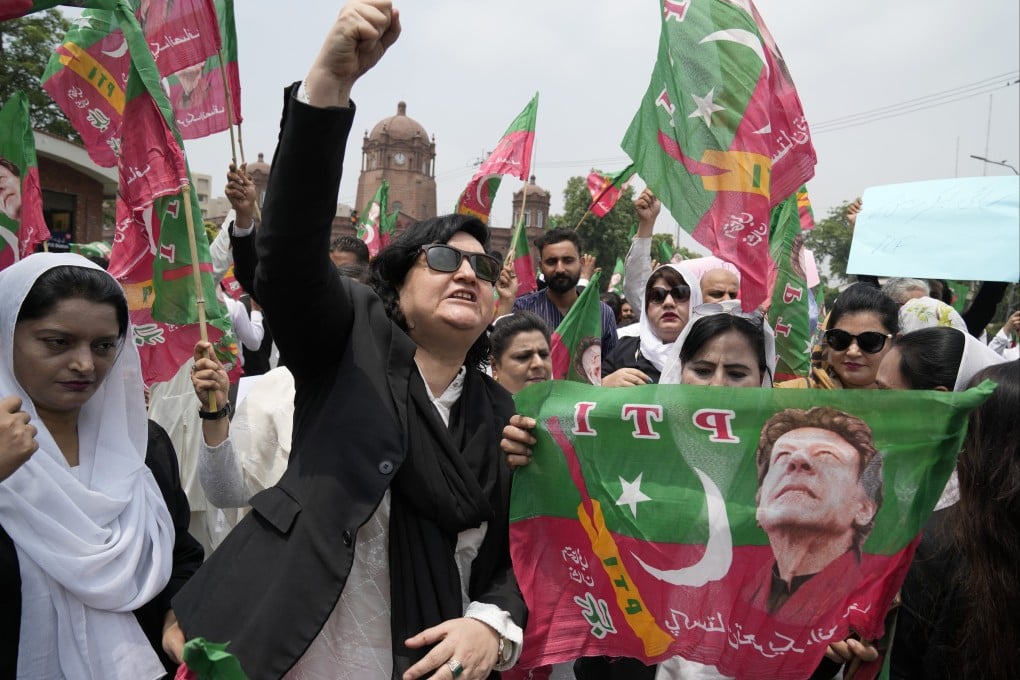Advertisement
Opinion | Imran Khan’s jailing leaves little hope Pakistan’s democracy can escape ruling elite and meddling military
- Imran Khan’s imprisonment and removal from politics is the latest development in months of political turmoil since his removal from office last year
- National elections are due soon, and the establishment’s influence means there is little expectation the upcoming vote will be free and fair
Reading Time:3 minutes
Why you can trust SCMP
2

Last Saturday, police in Pakistan arrested former prime minister Imran Khan after a court sentenced him to three years in prison. He was accused of buying and selling state gifts worth around US$500,000 during his premiership from 2018-22.
Advertisement
Khan, a former Pakistan cricket captain turned politician, was taken into custody in May by paramilitary troops who stormed into at the Islamabad High Court to jail him on several corruption charges. Protests erupted around the country as word of Khan’s detention spread.
Armed with batons, the former prime minister’s followers targeted security institutions, including army headquarters. After he was granted bail on May 12, Khan blamed the army chief, General Syed Asim Munir, for the situation, saying, “It’s not the security institution; it is just one man, the army chief.”
Khan’s arrest is the latest development in months of political turmoil since his removal from office last year and his Pakistan Tehreek-e Insaf (PTI) party facing a crackdown, with many senior leaders arrested and forced to quit the party. Thousands of his supporters, alleged to be involved in the protests, have been arrested with the prospect of being tried in military courts.
Pakistan’s military has ruled the country for more than half its existence since gaining independence in 1947. Only three of Pakistan’s 23 prime ministers have held office for more than four years, and the country continues to operate as a partial democracy owing to the military’s control over domestic and external affairs.
Advertisement
Pakistan’s democratic identity is fuelled by complex tussles between two political dynasties: the Pakistan People’s Party (PPP), led by the Bhutto family, and the Pakistan Muslim League (PML-N), led by the Sharif family. For the first time, the Khan-led PTI posed a challenge to the status quo with his anti-corruption campaign and governance reform promises.

Advertisement
